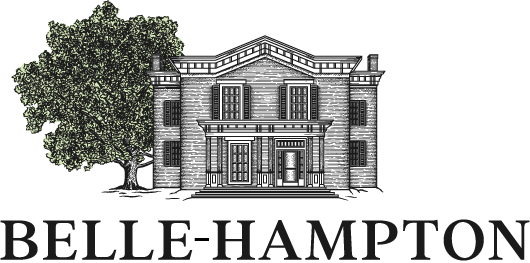Confessions of a Book Enthusiast: Family Enterprise Book Recommendations
Madeline Hoge at Monticello, 2020
My passion is hardcover, paperback, audiobooks, Kindle, and new and old books. Books open up the world of knowledge. Books on Family Businesses specifically create an opportunity to learn and enhance the family enterprise and gain what is called Intellectual Capital. Governance, Family Council, Philanthropy, Succession, and NextGen are topics in my extensive library. Learn real stories and life lessons with autobiographies and biographies. Historic books give perspective on life during those times. Here are some of my top recommendations.
Some of my favorites for Family enterprises include the following books. The Legacy Conversation, the missing gem in wealth planning by Carolyn J. Friend & James M. Weiner, discusses the true family inheritance. It considers more than just money by distinguishing between the tangibles and the intangibles. What are the family's values and their purpose? These intangibles leave a lasting legacy.
The Family Council Handbook by Christopher Eckrich and Stephen McClure is a must-have for those families starting their Family Council journey. It is a how-to guide on structuring the governance. This book contains the nuts and bolts to prepare a family for their future responsibilities. It discusses how to handle conflict, identify boundaries between enterprise and family, and what to include in a family charter. This book transforms family dinner conversations into a professional and structured meeting format.
For those interested in learning through examples, Rooted In Family: Honoring The Past While Creating Our Future by Caroline Coleman Bailey is your book. Caroline is a third-generation Gallo family member. She shares her journey of working in a family enterprise. She is faced with a hard decision to stay and work in the enterprise or leave. Her struggles resonate with her audience, with family harmony at the core of her decision. How does she keep peace with her family in the enterprise and her immediate family unit? She openly shares her conclusion.
To assist in financial literacy, start early with a discussion about money and responsibility. A great children’s book, But I want It by Alan Beaulieu, teaches the value of saving, sharing, and spending. For the adult, the version to learn about financial acumen read Stop Acting Rich: And Start Living Like A Real Millionaire by Thomas J. Stanley. It discusses how to achieve financial freedom. Or the book Money: The True Story of a Made-Up Thing by Jacob Goldstein. It gives a unique perspective of how money is useful fiction. It only works as we intend it to if we believe it can.
If you are looking for ways to give money to a good cause, the book Money Well Spent: A Strategic Plan for Smart Philanthropy by Paul Brest and Hal Harvey would be good. Use it as a guide on how to structure philanthropy so that it makes a difference. Philanthropy is a booming business, but not all causes are created equal. If you want to impact what is important to you and your family, it is a good resource.
But reading business books is not the only way to expand your knowledge for you and your family. Biographies and autobiographies can demonstrate courage, leadership, and other values you hope to pull forward to the next generation. Alfred Gwynne Vanderbilt: The Unlikely Hero of the Lusitania by Steven H. Gittelman and Emily Gittelman tells the story of a playboy-turned hero on the sinking ship. Vanderbilt demonstrated courage in the face of his demise. Abraham Lincoln: A Presidential Life by James M. McPherson also depicts the courage it took to lead a nation through some of America’s darkest times.
Through the story of P. T. Barnum: America's Greatest Showman by Philip B. Kunhardt Jr., Philip B. Kunhardt III, and Peter W. Kunhardt learn lessons on entrepreneurship. Discover his vision and genius to produce the most incredible show on earth. Or Andrew Carnegie, after his success and eventual sale of his company to J.P. Morgan, he devoted his life to philanthropic causes. He built more than 2500 libraries and gave away over $350 million during his lifetime.
By encouraging family members to work toward their full potential, book recommendations can assist with developing the next generation. As a family enterprise, our family has a must-read list if they are in a leadership role within the family governance. Traction: Get a Grip on Your Business by Wickman, Gino is the framework for the Entrepreneur Operating System (EOS) used for our family council meetings. We rotate the facilitator of the meanings, so our adult children need to understand the system to manage the method adequately. We also recommend Good to Great: Why Some Companies Make the Leap and Others Don't by Jim Collins to demonstrate what it takes to lead.
But books are just part of the family development process. When looking at the family enterprise members, how do you create a plan for the family legacy? An all-encompassing plan of books, activities, classes and conferences, videos, etc. Intentionally mapping out an annual structured educational plan can lead to an active and engaged next generation increasing the odds of escaping the shirt sleeves to shirt sleeves cycle. If you want more recommendations, follow me on social media or visit Belle-Hampon.com.

